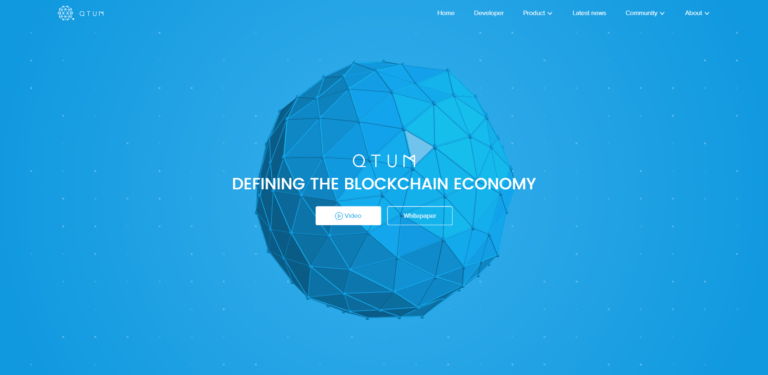On Thursday (May 2), Singapore-based Qtum Chain Foundation (“Qtum”) “unveiled a full suite of blockchain developer tools in partnership with Google Cloud.”
What Is Qtum?
Here is what Abra’s “Ultimate Altcoin Guide” has to say about Qtum:
“Qtum was designed as a business-ready blockchain… with an initial coin offering (ICO) in March 2017…
With a strong team and strong backing, Qtum can be best thought of as a hybrid between Bitcoin and Ethereum, taking good parts from both, and creating a new and accessible place for businesses to launch distributed applications built on smart contracts.
Qtum features a strong team lead by Patrick Dai… with other team members coming from prestigious and well-known Chinese tech companies such as Alibaba, Baidu, and Tencent. Beyond their ICO capital, they are backed by more traditional capital from established angel and private investors in China..
A rarity in the blockchain world, Qtum is also backward compatible with ethereum contracts as well as bitcoin gateways and will remain backward compatible even after updates. This allows for easy platform adoption and a 'plug and play' methodology that leans upon what other technologies in the space have done well…
Qtum is making a big push to create technology that is nimble and flexible enough to enable smart contracts on mobile devices and also plans to expand into IoT (internet of things) devices.”
These are the Qtum blockchain’s main technical specifications:
- “Transaction model: UTXO (Unspent Transaction Output) from bitcoin”
- “Smart contract architecture: EVM (Ethereum Virtual Machine), adding the x86 virtual machine in 2019”
- “Block size: 2 million bytes, scalable using on-chain DGP (Decentralized Governance Protocol) up to 32 million bytes”
- “Smart contract token protocol: QRC20, based on Ethereum ERC20; QRC721 non-fungible tokens in development”
- “Consensus algorithm: Proof of Stake, version 3.0, upgraded from Blackcoin”
- “Block reward: 4.0 QTUM through February 2022 (halved every 4 years), plus a share of transaction fees and gas”
Qtum’s New Developer Suite
Qtum’s blog post says that these “free-to-use tools, are designed to give developers and non-technical users alike, a simple and cost-effective way of launching nodes and building on the Qtum blockchain.”
According to Miguel Palencia, Qtum’s Chief Informtion Officer (CIO):
“Google Cloud is the perfect partner to help us make the blockchain ecosystem simpler and more intuitive. Where launching a node was once an intensive and complex process, Qtum’s new developer suite introduces helpful shortcuts and tools to make it faster and easier. With a more accessible technology, we hope to open up and expand the Qtum community to include people with a broader range of experience — from experts to the everyday user.”
This developer suite is “available through the Qtum compute engine,” which “lets anyone launch a full developer environment on Qtum and begin developing or staking in a matter of seconds, free of cost.”
Until now, “developers had to source the necessary tools themselves to create a full Qtum node or decentralized applications (dApps).”
However, now, users “have access to the suite of tools necessary to build dApps, launch a full node, make a fork, or begin staking on the Qtum blockchain on Google Cloud.” Whenever “the Qtum source code is updated, Google Cloud will automatically update the code everywhere, saving developers the need to manually re-download in order to remain on the latest version.”
The Qtum developer suite includes “Qtum Core, a Solidity Compiler, Qmix IDE, Solar (smart contracts deployment tool), Qt-dev libraries, and all other necessary libraries and tools to develop dApps.”
According to CryptoCompare, at press time (May 3, 06:40 UTC), QTUM is trading at $2.58, up 5.74% in the past 24-hour period:

Featured Image Courtesy of Qtum Chain Foundation









